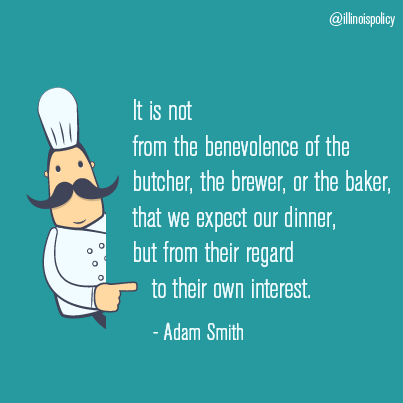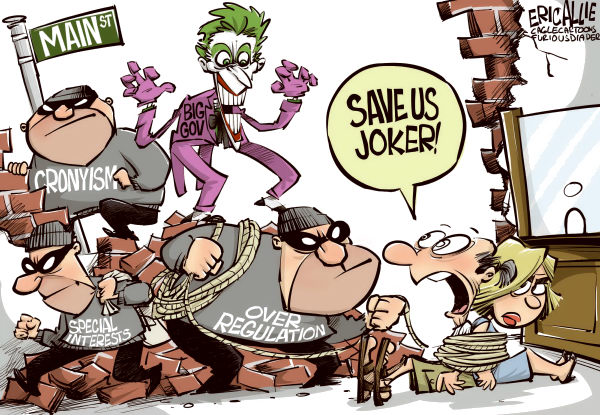QUOTE OF THE DAY

Chicago Tribune: Governor signs bill making Illinois first state to ban microbeads
Illinois Gov. Pat Quinn signed legislation Sunday banning the manufacture and sale of personal care products containing synthetic plastic microbeads.
“Banning microbeads will help ensure clean waters across Illinois and set an example for our nation to follow,” Quinn said. “Lake Michigan and the many rivers and lakes across our state are among our most important natural resources. We must do everything necessary to safeguard them.”
The new law bans the manufacture of personal care products containing microbeads by the end of 2017, the sale of personal care products and the manufacture of over the counter drugs by the end of 2018, and the sale of over the counter drugs by the end of 2019.
Daily Herald: District 214, education support union reach agreement
Northwest Suburban High School District 214’s Board of Education on Thursday approved a new three-year contract with the Educational Support Personnel Association, the district’s 400-member union for employees including instructional assistants, campus security, clerical staff and administrative and technology assistants.
Association members will receive a wage increase of 2.9 percent in the first year, 2.8 percent in the second year and 2.7 percent in the third year, as well as additional increases reflecting years of experience in the district. The average association member earned about $33,000 in the 2013-2014 academic year.
Association members approved the contract May 30, with 97 percent voting yes. The new contract takes effect July 1, and runs through June 30, 2017.
Newstimes: Quinn: Shakman lacks authority to challenge hiring
Gov. Pat Quinn has asked a federal court to reject Michael Shakman‘s challenge to state hiring, saying the Chicago anti-patronage attorney has no authority to raise questions and seeks resolution that would unnecessarily disrupt government and undermine gubernatorial authority.
The Democratic governor’s request, which blames the now-imprisoned ex-Gov. Rod Blagojevich for any misconduct in hiring, was filed late Friday in U.S. District Court in Chicago.
Shakman, author of a landmark 1972 court decree prohibiting political hiring in Cook County government, renewed his suit against Quinn in April. It claims the administration violated the Shakman decree and another that regulates state hiring by improperly considering politics in employment and promotion at the Illinois Department of Transportation.
Reason: Welcome to the Naked Future
“You have zero privacy anyway. Get over it,” declared tech guru Scott McNealy back in 1999. Fifteen years later McNealy’s statement is no longer factually controversial.
We all give up gigabytes of personal information to Facebook, Foursquare, Google, AT&T—and that’s just the voluntary stuff. In the past year, former government contractor Edward Snowden has revealed that our own government has been engaging in pervasive domestic spying, keeping track of everyone we’ve called, for how long we spoke, and from where. Privacy looks increasingly like a quaint mid-20th century relic.
In his new book, The Naked Future: What Happens in a World That Anticipates Your Every Move? (Current), formerFuturist Deputy Editor Patrick Tucker explores a more positive take on how we can personally use the megabytes of information generated and collected by our digital paraphernalia to help us live smarter, healthier, and better lives, and maybe even regain some measure of privacy. Tucker, who is now technology editor at Atlantic Media’sDefense One, argues that all that data will enable us to predict and thus take more control over our futures. The Internet of Things is being born as the world is increasingly loaded up with gadgets that can sense where they are and can report what is happening around them to any other device connected to the network.
Washington Post: Uber mobilizes its users to fight ban in Virginia
If you’re an Uber customer and a Virginia resident, chances are there’s an urgent message from the company in your inbox.
On Thursday, after more than six months of back-and-forth, Virginia officials ordered the app-based ride-sharing company to cease operating in the state because it is in violation of current rules governing such services.
Uber officials (as well as those with Lyft), however, said they will continue to operate because the rules cited by officials with Virginia’s Department of Motor Vehicles don’t apply to them.
CARTOON OF THE DAY
